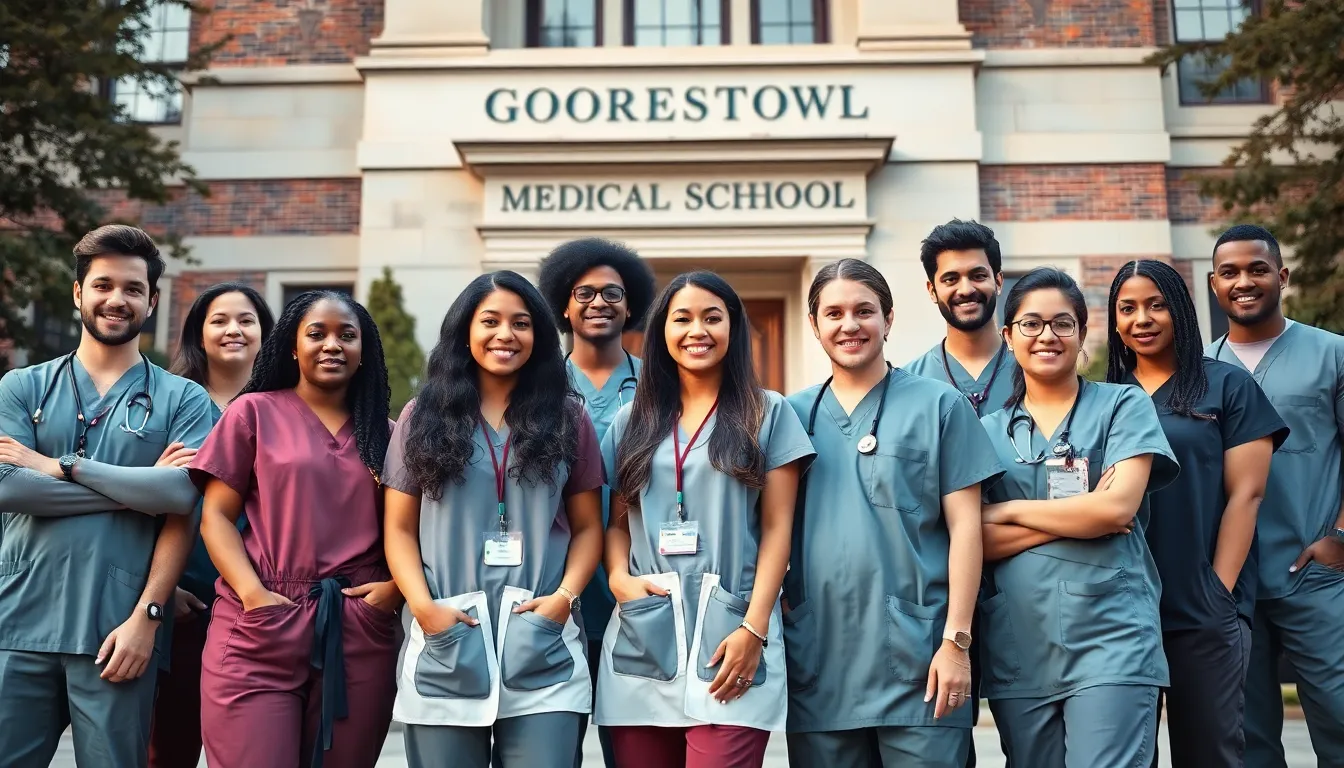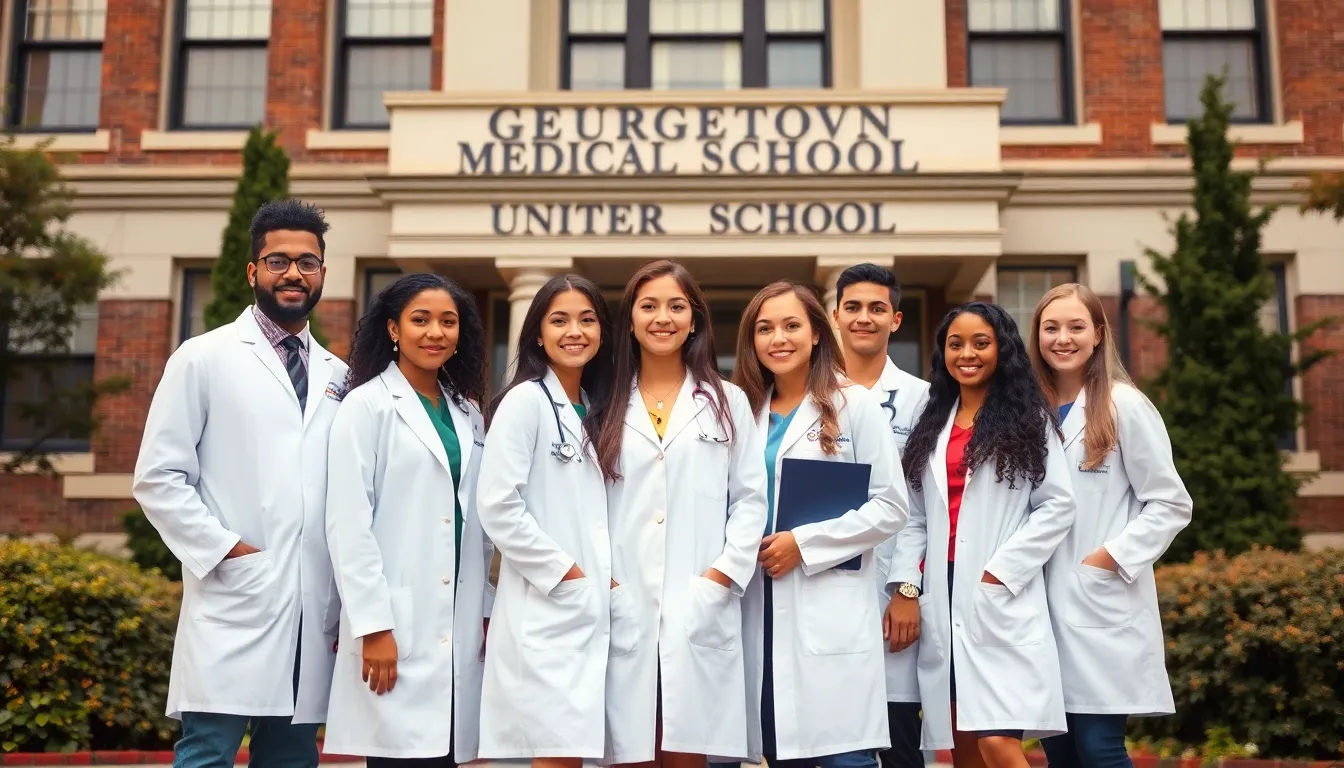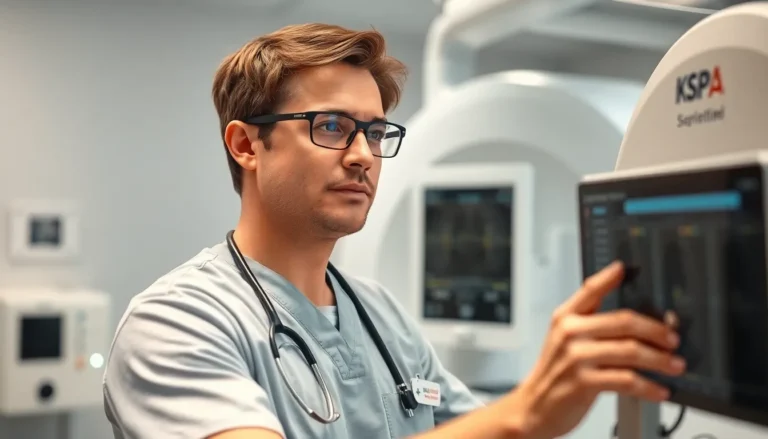Getting into medical school is no walk in the park, and Georgetown Medical School is no exception. With its prestigious reputation and rigorous curriculum, aspiring doctors might find themselves sweating bullets over the acceptance rate. It’s like trying to win a game of musical chairs where the music never stops and the chairs keep disappearing.
Table of Contents
ToggleOverview Of Georgetown Medical School
Georgetown Medical School, formally known as the Georgetown University School of Medicine, holds a strong reputation within the field of medical education. Located in Washington, D.C., it emphasizes a holistic approach to medical training, integrating rigorous academic curriculum with a focus on ethical practice and patient care. Students benefit from exposure to diverse healthcare settings, including the nearby MedStar Georgetown University Hospital.
The admissions process ranks among the most competitive in the nation. In recent years, the acceptance rate has hovered around 2.8%, making it essential for applicants to present exemplary academic records, high MCAT scores, and robust extracurricular experiences. The school values qualities such as leadership, compassion, and a commitment to serving the community.
A comprehensive curriculum encompasses a variety of specialties and electives to prepare students for diverse medical paths. Notably, the school’s emphasis on patient-centered care aligns with its Jesuit values, promoting a focus on social justice in medicine. Opportunities for research also abound, as students have access to cutting-edge facilities and initiatives that encourage innovative health solutions.
Furthermore, Georgetown’s network of alumni plays a significant role in supporting current students. Mentorship programs connect students with successful professionals, while internship opportunities allow hands-on experience in various medical fields. Engaging with this network enhances students’ educational journeys, preparing them for future roles in health care.
Georgetown Medical School Acceptance Rate


Georgetown Medical School’s acceptance rate remains one of the most competitive in the country. Understanding this rate provides insight into the challenges faced by applicants.
Historical Trends
Historically, Georgetown Medical School has maintained a low acceptance rate, hovering around 2.8%. This trend reflects the institution’s unwavering commitment to quality over quantity in its admissions process. Increased applicant numbers contribute to the competitiveness, with thousands vying for just a limited number of positions each year. Over the past decade, the school has preserved its selective standards, attracting top candidates from diverse backgrounds. Admission trends consistently demonstrate a rising demand for medical education at Georgetown, coupled with a rigorous selection process that evaluates more than just academic scores.
Recent Statistics
Recent data shows Georgetown Medical School continues to uphold its stringent admission criteria. With an acceptance rate near 2.8%, the school remains highly desirable among aspiring medical professionals. In the latest application cycle, the average GPA of accepted students stood at 3.8, while the median MCAT score was 515. These statistics illustrate the caliber of students Georgetown attracts. Candidates must also showcase leadership abilities and commitment to community service, reflecting the school’s holistic admissions approach. The competitive landscape requires applicants to excel academically while engaging actively in extracurricular activities that convey their dedication to the field of medicine.
Factors Influencing Acceptance Rates
Georgetown Medical School’s acceptance rate reflects many key factors that potential applicants should consider. A candidate’s academic prowess plays a crucial role in this process.
Academic Requirements
Strong academic performance is essential for admission to Georgetown Medical School. The average GPA of accepted students is 3.8, indicating the high academic standards expected. A competitive MCAT score also significantly impacts admission chances. With a median MCAT score around 515, applicants must demonstrate exceptional test-taking abilities. In addition to grades and scores, prerequisite coursework in areas such as biology, chemistry, and physics enhances a candidate’s profile. Admission committees thoroughly evaluate transcripts to ensure a solid foundation in the sciences, which supports success in medical training.
Extracurricular Activities
Extracurricular involvement constitutes another critical component of the application. Active participation in volunteer work or community service highlights a candidate’s commitment to helping others. Leadership roles within organizations showcase an applicant’s ability to lead and influence. Engagement in healthcare-related internships or research experience provides valuable insights into the medical field. These activities not only strengthen the application but also align with Georgetown’s values of compassion and social justice. Candidates who can articulate their experiences effectively during interviews have an advantage during the selection process.
Tips For Applicants
Georgetown Medical School, with its highly competitive acceptance rate, demands an exceptional application from candidates. Applicants must exhibit both academic excellence and a strong commitment to community service.
Application Strategies
Focus on achieving a high GPA, ideally around 3.8, to stand out. Candidates should prioritize coursework in biology, chemistry, and physics, ensuring they meet all prerequisites. Engage actively in extracurricular activities, especially those related to healthcare, as these experiences enhance an application. Demonstrating leadership roles adds significant value. In essays, articulate personal experiences clearly, connecting them with Georgetown’s values on compassion and social justice. Furthermore, obtaining strong letters of recommendation from individuals familiar with applicants’ skills can strengthen their case.
Interview Preparation
Preparation for the interview plays a crucial role in the admissions process. Candidates should familiarize themselves with key aspects of Georgetown’s mission and values, connecting those principles to their personal journey. Practicing common medical school interview questions enhances delivery and confidence. Reflection on past experiences proves beneficial, especially in articulating how they align with Georgetown’s holistic approach to medicine. Additionally, being ready to discuss community service contributions and future goals shows genuine commitment. Candidates may consider mock interviews to simulate real conditions and receive constructive feedback.




